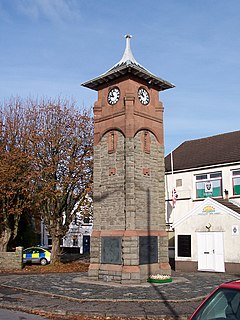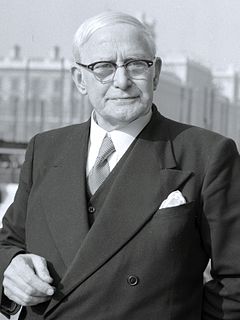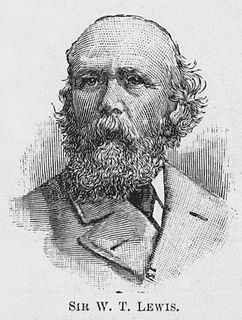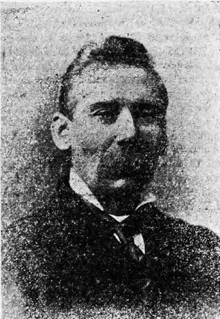John Davies (died 25 July 1918) was a Welsh politician and trade unionist, who served as Mayor of Merthyr.

The Welsh are a Celtic nation and ethnic group native to, or otherwise associated with, Wales, Welsh culture, Welsh history and the Welsh language. Wales is a country that is part of the United Kingdom, and the majority of people living in Wales are British citizens.
Born in Hirwaun, Davies left at the age of eight to attend school in Newchurch. Four years later, he returned to live with his father in Hirwaun, and began working at a local coal mine. He became active in the local trade union, the Aberdare, Merthyr and Dowlais Miners' Association, and when he was 27 he was elected to its executive committee. [1] He was proposed at a workers' meeting as a labour candidate in the October 1888 Merthyr by-election, but he refused the nomination. [2]

Hirwaun is a village and community at the north end of the Cynon Valley in the County Borough of Rhondda Cynon Taf, South Wales. It is 4 miles (6 km) NW of the town of Aberdare, and comes under the Aberdare post town. At the 2001 census, Hirwaun had a population of 4,851. increasing at the 2011 census to 4,990. The village is on the Heads of the Valleys Road and at the southern edge of the Brecon Beacons National Park.
The Aberdare, Merthyr and Dowlais Miners' Association was a trade union representing coal miners in part of Glamorgan in South Wales.
In 1895, Davies was elected to represent the Aberdare miners on the Sliding Scale Committee, which determined their wages. He became regarded at the deputy to local miners' agent David Morgan, and during the Welsh coal strike of 1898 collected donations from miners in North Wales and South Staffordshire. At the end of the strike, he was one of four miners' representatives who refused to sign an agreement. [1]
David Morgan was a Welsh miners' agent and trade unionist who played a prominent role in the history of industrial relations in the South Wales Coalfield from the 1870s until his death in 1900.

The Welsh coal strike of 1898 was an industrial dispute involving the colliers of South Wales and Monmouthshire. The strike began as an attempt by the colliers to remove the sliding scale, which determined their wage based on the price of coal. The strike quickly turned into a disastrous lockout which would last for six months and result in a failure for the colliers as the sliding scale stayed in place. The strike is seen as an important landmark in Welsh history as it saw the true adoption of trade unionism in the southern coalfield which had been slow to take hold before then. The South Wales Miners' Federation was the largest trade union to have originated from this dispute.
After the strike, the South Wales Miners' Federation (SWMF) was established, and the local union was split into three districts. Davies was elected to the first executive committee of the SWMF. Soon after, he won election as full-time miners' agent for the Dowlais District, relocating to the area, and remained in the post until his death. [1] [3]

The South Wales Miners' Federation (SWMF), nicknamed "The Fed", was a trade union for coal miners in South Wales. It survives as the South Wales Area of the National Union of Mineworkers.
In the late 19th-century, Davies spent eighteen months on the Aberdare School Board. He was elected to represent Dowlais on the Glamorgan County Council in an 1899 by-election, as a Liberal-Labour candidate. [4] He was made an alderman in 1905, but stood down in 1908, when Merthyr was made into a county borough. He was elected to Merthyr's first council, again representing Dowlais, and in 1914/15, he served as Mayor of Merthyr. [1] He was the second worker to become Mayor of Merthyr, after Enoch Morrell. [5]
The Aberdare School Board was formed in 1871 and consisted of thirteen members elected for a period of three years. It was abolished, along with other School Boards in 1902 and its responsibilities transferred to Glamorgan County Council.
Glamorgan County Council was established in 1889 together with the administrative county of Glamorganshire under the Local Government Act 1888. The first elections to the council were held in January 1889. The county was abolished under the Local Government Act 1972 on 1 April 1974. It was replaced by the three counties of Mid Glamorgan, South Glamorgan and West Glamorgan.
The Liberal–Labour movement refers to the practice of local Liberal associations accepting and supporting candidates who were financially maintained by trade unions. These candidates stood for the British Parliament with the aim of representing the working classes, while remaining supportive of the Liberal Party in general.
Davies was a deacon at the Bethania Congregational Chapel, and advocated abstinence from alcohol. [1]
Bethania, Dowlais was a Welsh Independent, or Congregationalist, chapel in South Street, Dowlais, near Merthyr Tydfil, South Wales. The cause was established in 1824 and the chapel rebuilt on several occasions in the nineteenth century. The present chapel dates from 1895.

Abstinence is a self-enforced restraint from indulging in bodily activities that are widely experienced as giving pleasure. Most frequently, the term refers to sexual abstinence, or abstinence from alcohol, drugs, or food.
In an obituary, the Merthyr Pioneer noted that Dowlais "may have more brilliant leaders in future – it will never have courageous, straightforward, or simple leader; a leader whose ideal of leadership was to be the spokesman of his class and kind, and not the exponent who marched ahead preaching the gospel as he conceived it should be spoken by the mob". [6]





